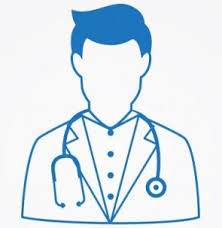

Teaching learning activities for Undergraduates:
I. Forensic Museum with self learning modules assisted by Lecturer/ Associate professor:
: Posters of various Medico-legal cases and autopsy findings.
: Drugs of abuse and utility of various chemicals used in investigationof trace evidence.
: Weapons of offence.
: Postmortem Instruments.
II. Teaching and self learning of X-ray films available at the department of Forensic Medicine and Toxicology, Kathmandu medical College, for diagnosis of injury to bones, grossly visible pathological lesions of bones and estimation of age from union of epiphyses.
III. Two weeks compulsory posting for 7th semester Undergraduate students provisioned in medico-legal centre at KMC, Duwakot for exposure in autopsy techniques demonstrated by faculties of the department and observed/assisted by undergraduate students.
IV. General and X-ray examination of individual bearing medico-legal history brought to medico-legal centre at KMC, Duwakotby investigating officers for Age Estimation.
V. Examination of skeletal remains for the purpose of identification by deducing age, race, stature and sex from exhumed/procured bones brought by investigating officers to medico-legal centre at KMC, Duwakot.
VI. Teaching and guiding students to prepare various medico-legal documents mentioned below:
VII. Exhibition and recording of Histo-pathology slides and provide knowledge on various plant poisons and irritants.
- Theory classes:
- Theory classes for VI and VII Semester students were taken online due to covid-19 restrictions by above mentioned faculties of Department of Forensic Medicine, KMC.
- Four classes per week, each for an hour, were conducted as per our lesson plan and curriculum of Kathmandu University.
- Tutorial and revision classes were conducted on Problem Based Learning method at the end of every topic followed by assignments/ assessments.
- Students were allowed to liberally visit faculties present at the Department during college hours, in case any individual help is required for better understanding of any topics.
- Practical/ Demonstration:
- Two weeks compulsory posting for 7th semester Undergraduate students provisioned in medico-legal centre at KMC, Duwakot for exposure in autopsy techniques demonstrated by faculties of the department and observed/assisted by undergraduate students.
- A log book is to be maintained by students which will be weekly evaluated to be later included in marking system of Board Examination.
Recently the department has been expended into into Medico-Legal Centre and initiated Medico-legal Services at KMC, Duwakot, Bhaktapur. There is facility of autopsy examination at the center. There is also a separate room for clinical forensic examination (sexual assault including victims and perpetrator, age estimation). This services are offered following request from police station. The center is also training site for medical students (3rd year), who will learn process of autopsy and other medico-legal works.
Services at KMC, Sinamangal offer preparation of fitness certificate, health certificate and injury examination certificates, following requisition from police stations in and outside Kathmandu valley for victims examined in KMCTH Sinamangal premises.
- Plans
To establish a well-equippedone stop crisis management center (OCMC) at the premises of KMC, Duwakot catering the victims of gender based violence in collaboration with the Ministry of Health and Population.
- Technology and infrastructures
The Medico-legal center, department of Forensic medicine KMCTH at Duwakot has all the necessary equipments for forensic autopsy examination, clinical forensic examination and sample collection. There are three autopsy tables in the autopsy room. There is also a separate room in the department for clinical forensic examination (sexual assault victim, perpetrator, age extimation). Similarly, refrigerator is also available at the medico-legal center to store the dead body.
At the department of Forensic Medicine, KMCTH, Sinamangal there is a Forensic Museum. Specimen of forensic significance are displayed in the museum. There are various weapon of offence, auotpsy instruments hume bones and toxicology specimens which are useful for teaching learning puropse.
